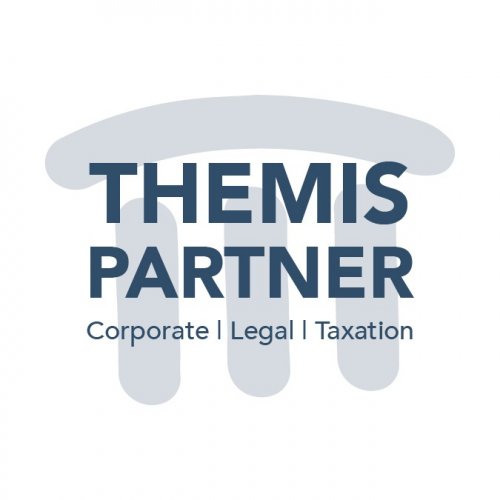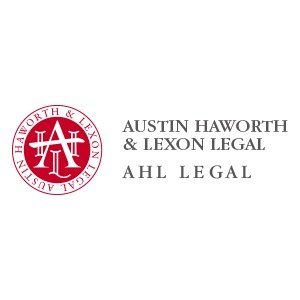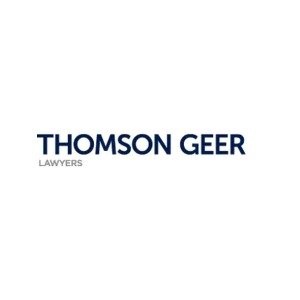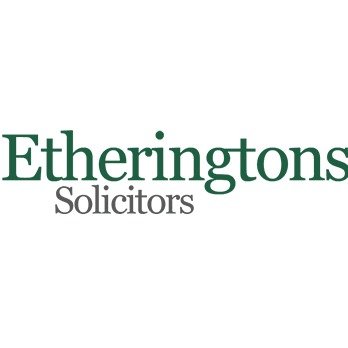Best Nonprofit & Charitable Organizations Lawyers in Sydney
Share your needs with us, get contacted by law firms.
Free. Takes 2 min.
List of the best lawyers in Sydney, Australia
About Nonprofit & Charitable Organizations Law in Sydney, Australia
Nonprofit and charitable organizations in Sydney, Australia, play a crucial role in supporting various social, educational, environmental, and humanitarian causes. These organizations operate without the primary goal of making profits for distribution to members or directors, emphasizing the importance of serving public good and community interests. The operation of such entities is governed by a combination of Australian federal laws, such as the Australian Charities and Not-for-profits Commission Act 2012, and local state regulations, ensuring transparency, accountability, and compliance with legal standards.
Why You May Need a Lawyer
Seeking legal assistance can be vital for nonprofit and charitable organizations at different stages of their lifecycle. Common situations that may require legal help include:
- Setting up a nonprofit or charitable organization and understanding the necessary legal structure.
- Navigating the complex registration and tax exemption processes with the Australian Charities and Not-for-profits Commission (ACNC).
- Ensuring compliance with state laws regarding fundraising, donations, and governance.
- Completing regulatory filings and reporting obligations accurately and on time.
- Drafting, reviewing, or amending organizational documents like constitutions, bylaws, or policies.
- Handling disputes within the organization or with external parties.
- Advising on matters related to employment law, volunteers, occupational health, and safety requirements.
Local Laws Overview
In Sydney, the operation of nonprofit and charitable organizations is subject to several key legal frameworks:
- Australian Charities and Not-for-profits Commission (ACNC): This federal body is responsible for regulating charities, providing guidance, and ensuring compliance with legal obligations.
- Incorporation and Taxation Laws: Nonprofits can incorporate as associations under state law or as companies limited by guarantee under federal law. They may also apply for tax exemptions and deductible gift recipient (DGR) status, governed by the Australian Taxation Office (ATO).
- Fundraising Laws: Organizations must comply with state laws governing the solicitation of charitable donations, including obtaining necessary permits and reporting.
- Employment Law: Compliance with Fair Work Act 2009 and other employment laws is necessary when hiring staff.
- Privacy and Data Protection: Organizations must adhere to the Privacy Act 1988 and related regulations to protect donor and stakeholder information.
Frequently Asked Questions
What is a nonprofit organization?
A nonprofit organization is an entity established for purposes other than generating profit. Its goal is to further a social cause or provide a public benefit.
What are the benefits of registering as a charity with the ACNC?
Registered charities can access specific tax concessions, increased credibility, and potential eligibility for grants and donations that require charitable status. Additionally, they gain listing on the public register, enhancing transparency.
How do I establish a nonprofit organization in Sydney?
To establish a nonprofit, decide on its structure (e.g., incorporated association, company limited by guarantee), draft governing documents, register with relevant authorities, and comply with legal reporting and operational obligations.
What is deductible gift recipient (DGR) status?
DGR status allows donors to claim tax deductions for the donations they make to an organization. Obtaining this status involves meeting specific criteria and application to the Australian Taxation Office.
Do nonprofits need to pay taxes in Australia?
Nonprofits may be eligible for tax exemptions, such as income tax exemption, provided they meet certain criteria and are registered with the ACNC. Other taxes like GST or FBT may also have exemptions or concessions available.
How can nonprofits raise funds legally in Sydney?
Nonprofits must adhere to state fundraising laws, which generally require registration and compliance with reporting and conduct regulations to solicit donations legally.
What are the obligations of nonprofit board members?
Board members of nonprofits have fiduciary duties, including acting in good faith, in the best interest of the organization, and with due care, skill, and diligence.
Are nonprofits subject to employment laws?
Yes, nonprofits must comply with employment laws, including fair work standards, occupational health and safety regulations, and other relevant legislation applicable to paid employees and volunteers.
Can a nonprofit engage in commercial activities?
Yes, nonprofits can engage in commercial activities as long as they align with their mission. However, the profits from such activities should be used to further the organization’s purposes, not distributed to members.
How often must nonprofits report to the ACNC?
Registered charities are required to submit an Annual Information Statement (AIS) and, in some cases, financial reports to the ACNC, with specific requirements depending on their size and type.
Additional Resources
Consider exploring the following resources for more assistance:
- The Australian Charities and Not-for-profits Commission (ACNC): Offers guidance on compliance and regulatory frameworks.
- The Australian Taxation Office (ATO): Provides information on tax obligations and exemptions for nonprofits.
- NSW Fair Trading: Offers assistance with incorporation and compliance for associations in New South Wales.
- Justice Connect’s Not-for-Profit Law: Provides legal information, training, and advice for nonprofits.
Next Steps
If you require legal assistance for your nonprofit or charitable organization in Sydney, consider taking the following steps:
- Consult with a lawyer specializing in nonprofit and charitable organizations to assess your legal needs and obligations.
- Gather all relevant documentation related to your organization’s formation, governance, and operations.
- Seek recommendations from industry professionals or networks for reputable legal service providers.
- Schedule consultations to discuss your specific needs and obtain advice tailored to your organization’s circumstances.
In summary, the intricate legal environment governing nonprofit and charitable organizations in Sydney necessitates thorough understanding and compliance, highlighting the importance of seeking specialized legal advice.
Lawzana helps you find the best lawyers and law firms in Sydney through a curated and pre-screened list of qualified legal professionals. Our platform offers rankings and detailed profiles of attorneys and law firms, allowing you to compare based on practice areas, including Nonprofit & Charitable Organizations, experience, and client feedback.
Each profile includes a description of the firm's areas of practice, client reviews, team members and partners, year of establishment, spoken languages, office locations, contact information, social media presence, and any published articles or resources. Most firms on our platform speak English and are experienced in both local and international legal matters.
Get a quote from top-rated law firms in Sydney, Australia — quickly, securely, and without unnecessary hassle.
Disclaimer:
The information provided on this page is for general informational purposes only and does not constitute legal advice. While we strive to ensure the accuracy and relevance of the content, legal information may change over time, and interpretations of the law can vary. You should always consult with a qualified legal professional for advice specific to your situation.
We disclaim all liability for actions taken or not taken based on the content of this page. If you believe any information is incorrect or outdated, please contact us, and we will review and update it where appropriate.

















